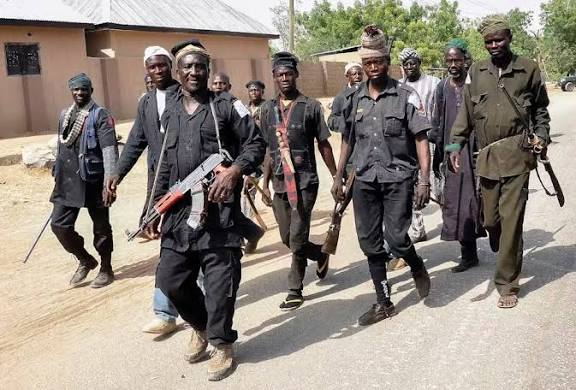Governor Mohammed Umar Bago of Niger State has declared a new, uncompromising security policy, ruling out any future negotiations or ransom payments to kidnappers and bandits—directing residents to take action in defending themselves.
This was confirmed in a statement issued by the governor’s Special Adviser on Print Media, Aisha Wakaso.
The address was delivered during a visit to Rijau and Magama Local Government Areas, the communities reeling from recent violent attacks. The Governor’s declaration signaled a significant shift in strategy, urging residents to take up arms and defend themselves collectively against the wave of criminality.
“The state has reached a point where the people must stand up and defend themselves because ransom will only turn kidnapping into a thriving business,” Governor Bago stated, continuing “I will not negotiate with bandits. I will not pay ransom. The moment we start paying, they will open shop on our heads.”
Invoking the constitutional right to self–defence, the Governor termed the ongoing security menace in the state as “state of crisis,” which required collective resistance.
Governor Bago cited illegal mining as a major causative factor triggering the security crisis, alleging complicity between miners and armed groups. Therefore, he announced an immediate and total ban on all mining activities within Zone C of the state, an area encompassing eight local government areas including Magama, Kontagora, and Rijau—
The Governor also directed the Nigeria Security and Civil Defence Corps (NSCDC) to arrest anyone caught engaging in mining activities in the banned zone—a move to wipe the root causes of the violence plaguing the state. “It is suspicious that miners can enter the forests freely, yet the bandits don’t touch them,”
Further emboldening the state’s response, the governor unveiled plans to recruit and train 10,000 new personnel for the Joint Task Force (JTF). This move aims to significantly enhance community-level security operations across Niger State.
Governor Bago pledged full support from the government for victims, including compensation for the families of the deceased, medical care for the injured, and economic relief for those who lost their livelihoods. This is to address the human cost of the attacks.
Reaffirming his commitment to restoring peace, the governor concluded that only a “united, courageous citizenry” can defeat the criminal elements threatening the state’s stability.

Extant Law Prohibits Arms Possession But Niger State Mandates Self–Defence Against Armed Men
The Nigerian Firearms Act prohibits illegal possession of firearms and ammunition, except such persons received license from reliable authority(s) to that effect. Examples of those items are artillery, bombs and grenades, revolvers and pistols whether rifled or unrifled, military rifles, machine guns and machine pistols, among others.
While the possession of the above illegal items attracted criminal liability punishable with fines, and imprisonment (jail terms minimum of ten years)—bandits, kidnappers and other criminal perpetrators waged them against armless civilians with impunity.
Section 33(1) of the Nigeria Constitution guaranteed and enshrined every citizen’s right to life, with no one shouldn’t be intentionally deprived of his life for no reason, saved in execution of court sentences. Against this fundamental provision, several people in Nigeria have lost their lives to bandits and banditry attacks with the latter escaping the law.
On several occasions, the Nigerian military and other state actors have warned against self–defence, citing escalation of insecurities, disguise perpetrating of criminality, etc.
Section 14, subsection 2 of the same Constitution states that “the security and welfare of the people shall be the primary purpose of government, and the participation by the people in their government shall be ensured in accordance with the provisions of this constitution.”
Therefore, Governor Bago’s declaration, just like its predecessors raised a dire concern: is the state government neglecting its primary responsibility to the citizens, and informally authorising usage of weapons without regulations. Because how can ordinary citizens protect themselves against bandits and kidnappers who are sometimes more heavily armed than the military.

